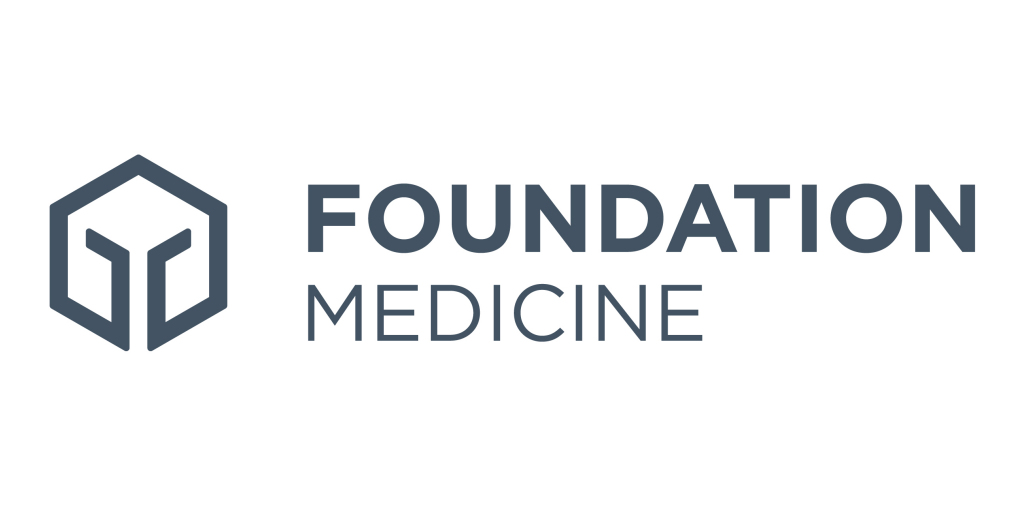With this approval, Foundation Medicine has seven companion diagnostic indications for breast cancer, the most of any comprehensive genomic profiling company
BOSTON--(BUSINESS WIRE)--Foundation Medicine, Inc. today announced that it has received approval from the U.S. Food and Drug Administration (FDA) for FoundationOne®Liquid CDx to be used as a companion diagnostic for Itovebi™ (inavolisib) in combination with palbociclib (Ibrance®) and fulvestrant, a therapy developed by Genentech, a member of the Roche group, which has been contemporaneously approved for the treatment of adult patients with endocrine-resistant, PIK3CA-mutated, hormone receptor (HR)-positive, human epidermal growth factor receptor 2 (HER2)-negative, locally advanced or metastatic breast cancer, as detected by an FDA-approved test, following recurrence on or after completing adjuvant endocrine therapy.


Approximately 70% of all breast cancers are hormone-receptor positive, HER2-negative.1 PIK3CA is the most commonly mutated gene in hormone-receptor positive, HER2-negative breast cancer, with approximately 40% of patients harboring this mutation.2
“This approval reinforces the importance of testing for PIK3CA mutations at the time of diagnosis to help guide decision-making in the first-line setting for metastatic breast cancer patients,” said Mia Levy, Ph.D., M.D., chief medical officer at Foundation Medicine. “Our high-quality liquid biopsy companion diagnostic relies on a routine blood draw to identify patients with PIK3CA mutations, enhancing broader access to genomic testing while allowing more patients to benefit from this new best-in-class first-line treatment regimen.”
Foundation Medicine is the only company with an FDA-approved portfolio of tissue and blood-based comprehensive genomic profiling tests. From a routine blood sample, FoundationOne Liquid CDx analyzes more than 300 cancer-related genes to provide genomic insights.
With this approval, Foundation Medicine has seven companion diagnostic indications for breast cancer, the most of any comprehensive genomic profiling company.3 Foundation Medicine is the global leader in approved companion diagnostic indications with more than 60% of all approved U.S. companion diagnostic indications for next-generation sequencing (NGS) testing.
“Given the high prevalence of PIK3CA mutations in hormone receptor-positive, HER2-negative breast cancer, the introduction of a new targeted treatment regimen in the first-line setting will have a profound impact on this patient population,” said Jean A. Sachs, MSS, MLSP, chief executive officer at Living Beyond Breast Cancer. “Biomarker testing plays an important role in helping patients and their families make personalized treatment decisions based on their individual cancer, and we’re encouraged to see Foundation Medicine continue to expand its approved companion diagnostic indications in breast cancer.”
Foundation Medicine and FoundationOne® are registered trademarks of Foundation Medicine, Inc.
About Foundation Medicine: Your Essential Partner in Cancer Care
Foundation Medicine is a pioneer in molecular profiling for cancer, working to shape the future of clinical care and research. We collaborate with a broad range of partners across the cancer community and strive to set the standard for quality, scientific excellence, and regulatory leadership. Our deep understanding of cancer biology helps physicians make informed treatment decisions for their patients and empowers researchers to develop new medicines. Every day, we are driven to help our partners find answers and take action, enabling more people around the world to benefit from precision cancer care. For more information, please visit us on www.FoundationMedicine.com and follow us on LinkedIn and X.
About FoundationOne®Liquid CDx
FoundationOne®Liquid CDx is a qualitative next generation sequencing based in vitro diagnostic test for prescription use only that uses targeted high throughput hybridization-based capture technology to analyze 324 genes utilizing circulating cell-free DNA (cfDNA) isolated from plasma derived from anti-coagulated peripheral whole blood of advanced cancer patients. The test is FDA-approved to report short variants in over 300 genes and is a companion diagnostic to identify patients who may benefit from treatment with specific therapies (listed in Table 1 of the Intended Use) in accordance with the approved therapeutic product labeling. Additional genomic findings may be reported and are not prescriptive or conclusive for labeled use of any specific therapeutic product. Use of the test does not guarantee a patient will be matched to a treatment. A negative result does not rule out the presence of an alteration. Patients who are negative for companion diagnostic mutations should be reflexed to tumor tissue testing and genomic alteration status confirmed using an FDA-approved tumor tissue test, if feasible. For the complete label, including companion diagnostic indications and complete risk information, please visit www.F1LCDxLabel.com.
__________________________________
1 Howlader N, Altekruse SF, Li CI, et al. US incidence of breast cancer subtypes defined by joint hormone receptor and HER2 status. J Natl Cancer Inst 2014;106(5). https://doi.org/10.1093/jnci/dju055
2 The Cancer Genome Atlas Network. Comprehensive molecular portraits of human breast tumours. Nature. 2012;490:61–70. https://doi.org/10.1038/nature11412
3 Data on File, Foundation Medicine, Inc., 2024
Contacts
Media:
Foundation Medicine:
Holly Campbell, 480.213.8368
newsroom@foundationmedicine.com




